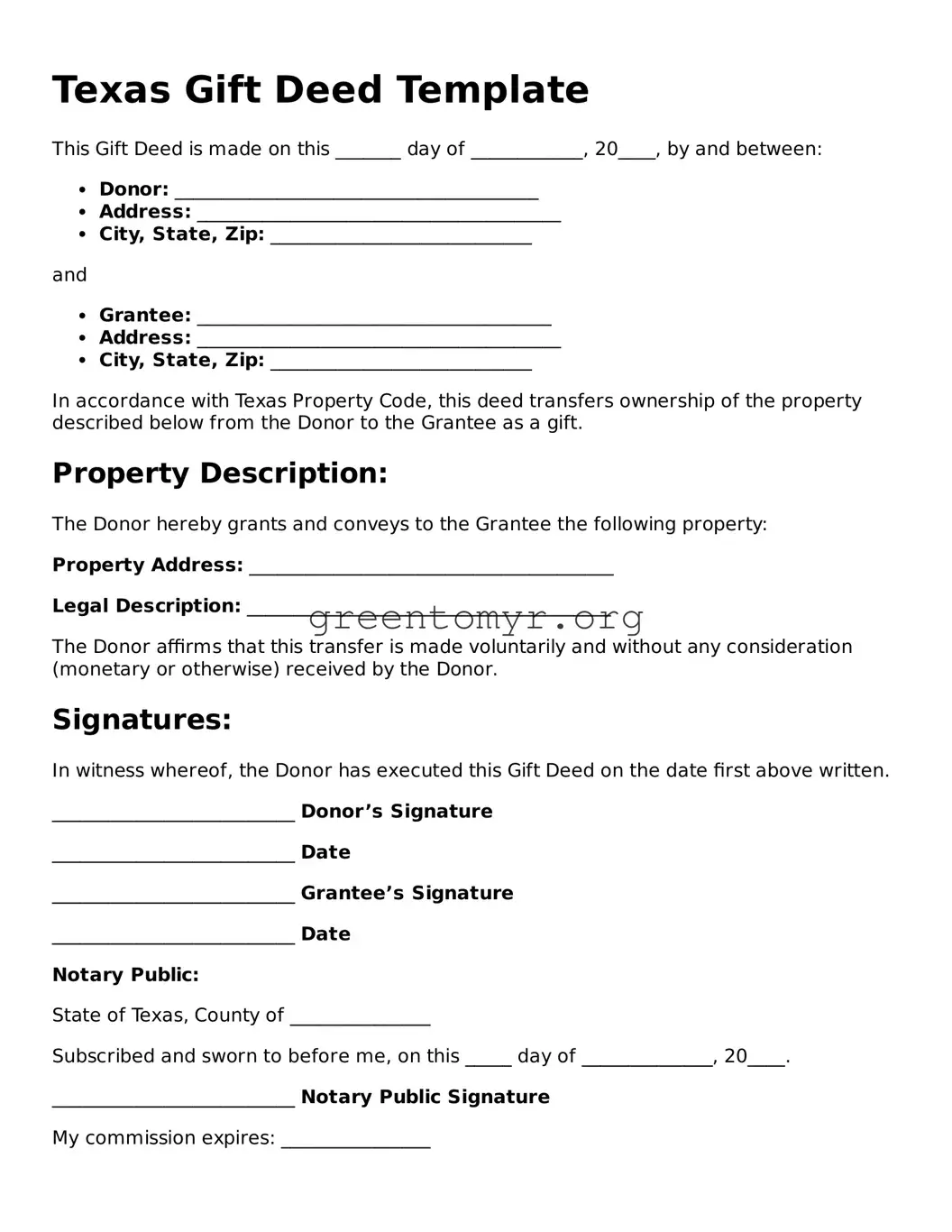Texas Gift Deed Template
This Gift Deed is made on this _______ day of ____________, 20____, by and between:
- Donor: _______________________________________
- Address: _______________________________________
- City, State, Zip: ____________________________
and
- Grantee: ______________________________________
- Address: _______________________________________
- City, State, Zip: ____________________________
In accordance with Texas Property Code, this deed transfers ownership of the property described below from the Donor to the Grantee as a gift.
Property Description:
The Donor hereby grants and conveys to the Grantee the following property:
Property Address: _______________________________________
Legal Description: _______________________________________
The Donor affirms that this transfer is made voluntarily and without any consideration (monetary or otherwise) received by the Donor.
Signatures:
In witness whereof, the Donor has executed this Gift Deed on the date first above written.
__________________________ Donor’s Signature
__________________________ Date
__________________________ Grantee’s Signature
__________________________ Date
Notary Public:
State of Texas, County of _______________
Subscribed and sworn to before me, on this _____ day of ______________, 20____.
__________________________ Notary Public Signature
My commission expires: ________________
